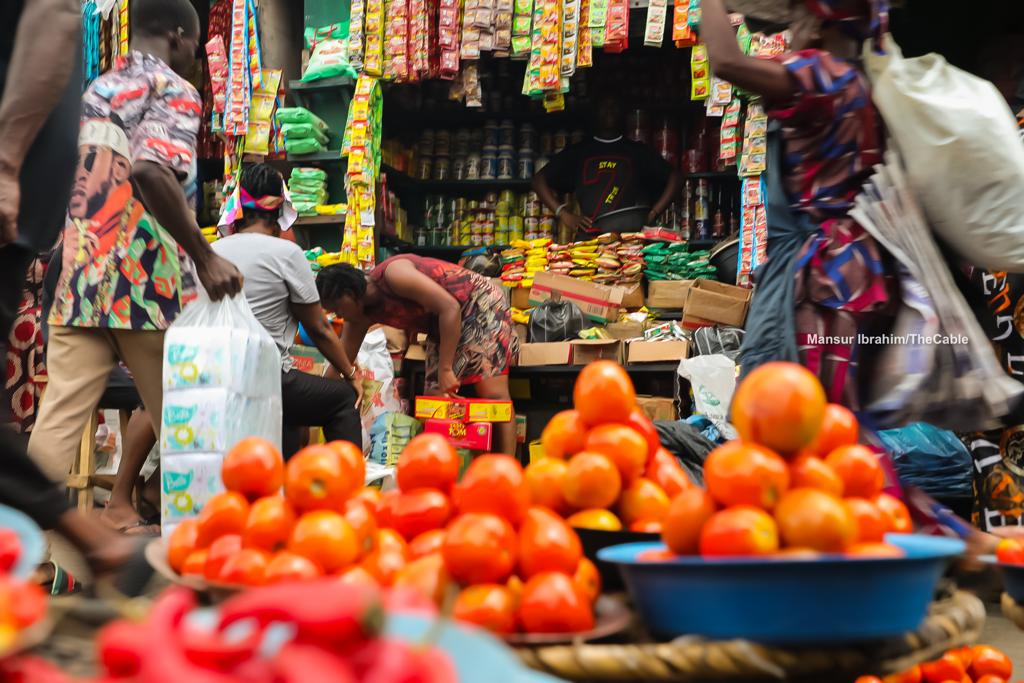Months after President Tinubu ruled out food importation, claiming that Nigeria could become a leading exporter on the continent instead, the federal government has announced a tax waiver on several foods imported into the country. This palliative measure seeks to not only increase the market supply of rice, wheat and other staples but also assuage the country’s biting food insecurity.
Nigeria’s soaring inflation today continues to be propelled by the persistent hike in food prices. The NBS statistics for May show that food inflation climbed to 40.66% from 24.82% in May 2023. As such, food prices continue to surge as household rations shrink.
Expert reckon that the persistent food crisis is a hydra-headed problem that calls for strategic interventions. This is worsened by variations in rainfall, disrupting many farming routines and causing a decline in the country’s food production output. The rains have been sparse across Nigeria in a time noted for heavy rainfall, causing stunted growth for many crops. In 2022, Nigerian farmers lost N700 billion to floods that ravaged much of the country and displaced more than 2.4 million people. The NBS estimates that the percentage quota of agriculture to the nation’s GDP has steadily decreased over the last 4 years, pushing the country to import more food in order to satisfy its population’s demands
Yet climate change is not the only culprit for the recent hikes in food prices in Nigeria. Protracted tensions between farmers and cattle herders, particularly in the country’s Middle belt region, have aggravated the crisis.
As drought and desertification drove many pastoralist farmers to seek pasture further south, a struggle for land between farmers and herders has snowballed into a nasty slaughter of mostly women and children. Farmers flee their farms and homes for safety. The Armed Conflict Location & Event Data Project (ACLED) documented at least 2600 deaths in 2021 across Nigeria’s northern region. Ex-president Buhari initiated the RUGA scheme in 2019 to curb this crisis, but the plan met with widespread criticism and was later cancelled.
In a similar vein, President Tinubu, on Tuesday, created the Ministry of Livestock Development as part of efforts to woo herders and While no minister has been announced yet, the ministry promises to resolve the long-drawn-out farmer-herder tensions
Amidst such factors as climate change and the depreciating value of the naira, the removal of petroleum subsidies at the onset of President Tinubu’s regime in May 2023 perhaps takes a lion’s share of the problem. Transportation costs have since increased by a huge margin since the termination of subsidies. Foods cultivated within the country—yams, tomatoes, and garri—have increased by nearly 200% as fuel prices have steadily risen.
The UN has warned recently that 82 million Nigerians—about 64% of the population—are at risk of acute hunger
The approval of duty-free imports for several food commodities underscores a great effort to tackle Nigeria’s persistent food crisis. By assisting smallholder farmers with technology to boost crop yield and reducing transportation costs, the government can ultimately keep hunger at bay.
Months after President Tinubu advocated for reduced food importation, the Nigerian government has announced a tax waiver on key imported foods like rice and wheat to combat severe food insecurity. This measure responds to soaring food inflation, which rose from 24.82% to 40.66% in a year, forcing many households to cut back on rations.
Contributing factors to the food crisis include irregular rainfall leading to poor crop yields, as well as severe flooding in 2022 which caused significant agricultural losses and displaced millions. Additional strain comes from escalating conflicts between farmers and pastoralists, particularly in the Middle Belt region, which has led to numerous fatalities and disrupted food production.
The recent removal of petroleum subsidies has further increased transportation costs, exacerbating the rise in food prices, notably for domestically cultivated staples. The UN has cautioned that approximately 82 million Nigerians are at risk of acute hunger.
To address these challenges, the government is facilitating duty-free food imports and promoting technological advances for smallholder farmers. The creation of the Ministry of Livestock Development aims to mitigate farmer-herder conflicts, reflecting a broader strategy to stabilize food security and manage inflation.






